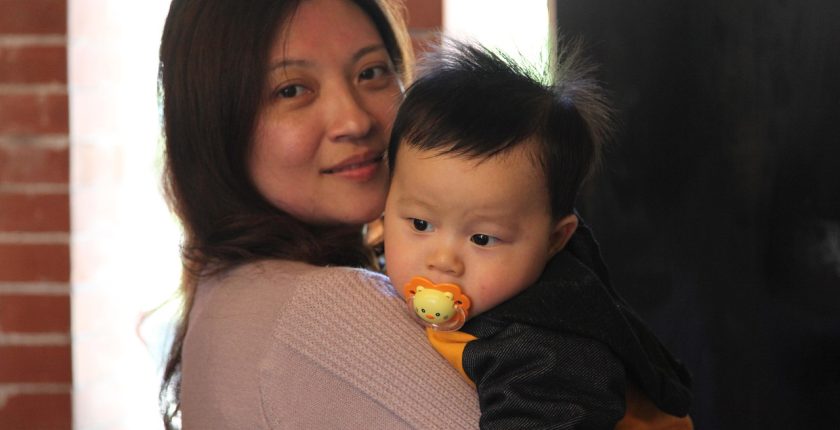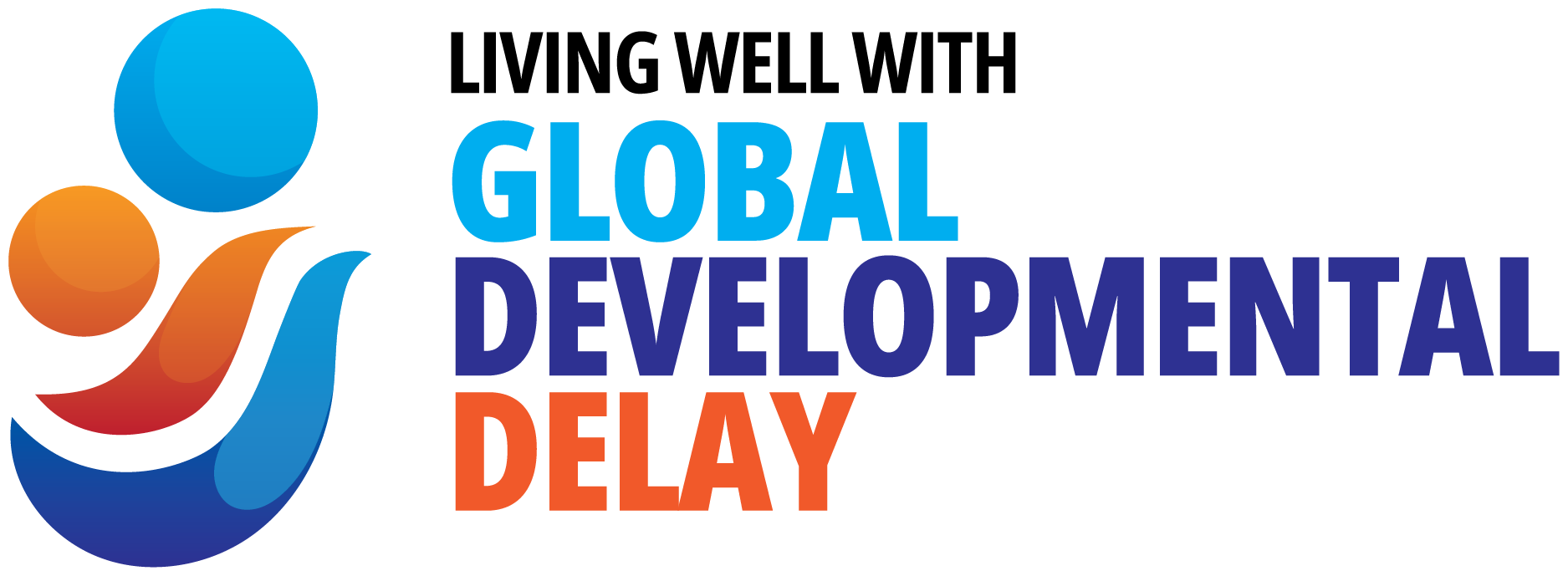Blog
One Day at a Time
- June 6, 2025
- Posted by: gl0b4dm1n
- Category: Global Developmental Delay

The Global Developmental Delay diagnosis did not come as a surprise at all. We had picked up on Hannah’s delayed signs very early on, as early as 7 months, when she was not sitting upright or rolling over. She did not chew her food at all but just wrapped her tongue around it and swallowed, causing her to gag multiple times during meals. She was also very floppy and did not react in a noticeable way when I interacted with her. My mum had even gone as far as saying that she was autistic because Hannah was self-stimulating a lot, including shaking her head, crossing her eyes, flapping her hands, and banging her head against a hard surface or with her hands.
In retrospect, Hannah was a very different baby from my first-born, Joshua. She was unusually quiet, except when she was hungry. She seemed to never feel full or satisfied. I was breastfeeding and as us mums are always told a baby would let go when they are full, I fed Hannah believing in that. She never once let go of my breasts on her own. She weighed 10 kg at 4 months old. When she was infected with the COVID 19 virus and hospitalized for a week, the doctors looked at her and said there might be something wrong with her, something related to genes or hormones perhaps. We had to put her on a diet. I also cut back on protein and starch while breastfeeding. We managed to keep her weight at 10 kg, from 4 months to 1 year old. Bravo us. But that was only the beginning of all the hard work.
We moved to Sydney from China, shortly after COVID 19 lockdown had passed. Hannah started physiotherapy in China at 10 months but after a few sessions she developed pneumonia from a cold and was hospitalized for another week. There were just too many kids in the clinic and Hannah’s immune system was just too weak. We sought to see a paediatrician for Hannah to get a diagnosis for support services when she was 15 months old. We booked with a neurology paediatrician because it was the earliest available. The paediatrician had us answering a checklist of whether Hannah was achieving any of the things including cruising, picking up objects with a pincer grasp, cooperating when getting dressed, reacting to her name, etc. That was when we got the diagnosis of mild Global Developmental Delay. After that it was a whirlwind of trying to navigate the public health system as well as NDIS.
We waited 2 months for the NDIS to respond to the paediatrician’s referral. Then another 2 months for them to organize a goal setting meeting and another month to hear the result. Someone from the local NDIS Early Childhood Partner Team contacted us. Our initial coordinator was not very helpful. I remembered our phone call meeting was her being very reassuring, but repeating the same thing over and over. I texted and emailed a few times asking about the progress but she did not respond. It was not until I emailed and said I needed to change coordinator that she finally said she was doing her best following up on the progress, that she has put in a note in the NDIS system to expedite the process. Then she went on break and we were blessed with a new coordinator. I took a look at her surname and I knew she is also from Hong Kong. We got to chat in Cantonese which made things so much smoother. She also told me a lot of tips and secrets in navigating the NDIS system. I think it is very important to speak up when things are not going well and fight for the best service possible.
We were trying everything to get Hannah started on therapy as soon as possible. We called the family nurse and got referred to public health for physiotherapy, occupational therapy and speech therapy. We also made contact with the Children Development Service at our local public hospital for further assessment and advice. The health professionals were all very helpful. But I guess that was not enough for the parents who were panicking that their child is not getting enough support on a regular basis. We also self-funded a few therapy sessions but were quite upset when we found the therapist spent most of her time looking down on her laptop while talking to us. She also mentioned something about how hypotonia cannot be cured or even improved. The sessions were just not comfortable and my gut told me that it was not going anywhere.
I called a few places to get on the waitlist when we finally got NDIS funding. I had no idea about how it could be so difficult to understand the service agreement, travel cost, pre-session cost, post-session cost and any non-face-to-face service charge. Luckily, we had a very good coordinator who explained everything to me in plain words. She said I should never sign the service agreement if I do not feel comfortable. Everything else does not matter. With her advice, I found a really good organisation.
The therapy journey was not easy. The first couple of months was Hannah refusing to cooperate or even be touched by our therapists. However, things did get better. I followed through and tried everything the therapists suggested and after a few months, Hannah was showing real progress. There were days when she would just stim for hours, or slapped me in the face so hard that I could not bear to bring myself near her; but there were also days when she responded to my cues beautifully, or started to show interest in some activities that she had never cared about before.
We received a further diagnosis when Hannah turned 30 months old. She is now diagnosed with moderate Global Developmental Delay and Intellectual Disability. We were so prepared for an ASD diagnosis that we were not prepared for otherwise. It took a few weeks for the diagnosis to settle in for me. As her primary carer, it hurts like hell to hear after nearly a year of therapy, her delay actually got worse. The doctor said she is 15 months delayed in her development. I remembered last time she was said to be 9 months delayed at 18 months old. I could not help but notice how the proportion in the delay is the same and thought to myself, oh my she is going to grow up as a 6-year-old and behave like a 3-year-old. This scary thought lingered until I talked to the OT from the assessment, who reassured me that would not be the case. Children with delay show progress like a staircase. They would plateau but then have a little spurt. It is unlikely that they would eventually catch up but they WILL learn, just at a slower pace.
Hannah is now 31 months old. She is walking independently. She has 10 words in English, Cantonese and Mandarin respectively. She has 10 key word signs, loves singing and can fill in the lyrics with a somewhat similar sound when I stop at the end of each line. She loves big movements including swinging, spinning, bouncing and crashing. She shows great interest in other people though she is still learning the appropriate way to interact with them.
My biggest concerns remain to be her social skills and sensory processing disorder. She has always been on the heavy-handed side and helicoptering her is really stressful for me. We cannot even go into shops with narrow aisles because she would always pull everything down. If someone crosses paths with her and is within her arm’s reach, she will grab or pinch them. Recently she has developed an obsession with other children’s bare feet. If she sees them she will approach and either bite or scratch them. I would really have to pull her back to stop her. There is something that triggers her like a shark smelling blood. I am yet to get to the bottom of that.
Looking back at the days when all she did was lying there looking at lights, throwing herself heavily back and forth when she cannot get what she wants (though she still does), or struggling in despair when I trained her with physio skills, it feels like a lifetime ago. She has improved so much since then and is thriving with the help of her support team. It is important, as I am always told as a special needs parent, to celebrate the little things. Today I found myself marvelling at her ability to tell which slipper goes on which foot when she re-adjusted my slipper on the floor while trying to put her right foot into it. Sometimes I look at Hannah and am totally in awe of God’s creation. She is so perfect in her own way. I hope people can see her the way I see her. The journey ahead will not be an easy one, but we just have to take it one day at a time.
– Katie, mum of Hannah
Related Posts:
